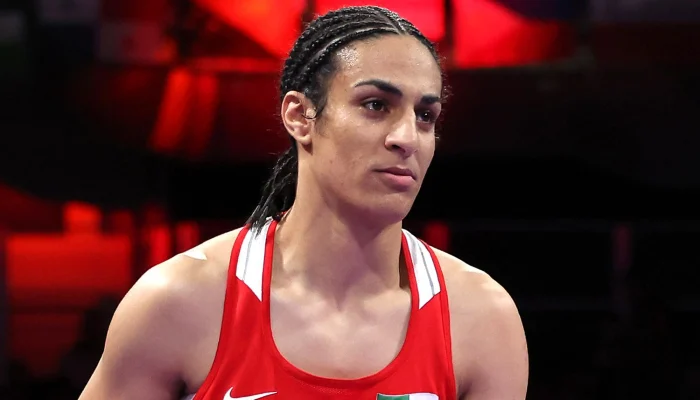Algerian boxer Imane Khelif is once again embroiled in a gender controversy following the leak of her medical reports, reigniting debates over gender identity in sports.
According to a report by Indian Express, French journalist Djaffar Ait Aoudia revealed that Khelif, a Paris Olympic gold medalist, suffers from a genetic condition that impacts sexual development. This condition, known to cause ambiguous genitalia and limit the expression of secondary male characteristics, has raised serious questions about her biological sex.
Medical records from June 2023, prepared by professionals at Kremlin-Bicêtre Hospital in Paris and Mohamed Lamine Debaghine Hospital in Algiers, have detailed Khelif’s anatomical makeup. The documents suggest that she has an XY chromosome structure and internal testicles, pointing to a rare condition called 5-alpha reductase deficiency. The reports also note that Khelif does not possess a uterus and indicates the presence of penile hypoplasia.
This medical disclosure has added fuel to the ongoing controversy surrounding Khelif’s gender, which has been questioned before.
Gender Controversy Reignited by Bulgarian Boxer’s Withdrawal
The latest uproar started when Bulgarian boxer Sevda Asenova withdrew from a match against Khelif during the Paris Olympics 2024. Asenova cited concerns over Khelif’s physical advantages, which led to a heated debate on social media about gender verification in sports.
Prominent figures such as former U.S. President Donald Trump, tech billionaire Elon Musk, and famous author J.K. Rowling joined the conversation, voicing their opinions and criticizing Khelif. This sparked a global debate on the intersection of biology, gender identity, and sports competition.
In response to the controversy, Khelif firmly defended her identity, stating, “I am a woman, I was born a woman, and I live as a woman.”
Ongoing Debate on Gender Verification in Sports
This incident has reignited the ongoing debate over gender verification in sports, a topic that continues to divide public opinion. Critics argue that genetic conditions like Khelif’s give certain athletes an unfair advantage, while others stress the importance of respecting individuals’ gender identity, regardless of their biological characteristics.
For Khelif, however, the controversy is nothing new. She has faced scrutiny over her gender since her early career, and this latest medical leak has once again thrust her into the center of a polarizing discussion. As the issue unfolds, it remains to be seen whether Khelif’s future in sports will be affected by these ongoing debates.


